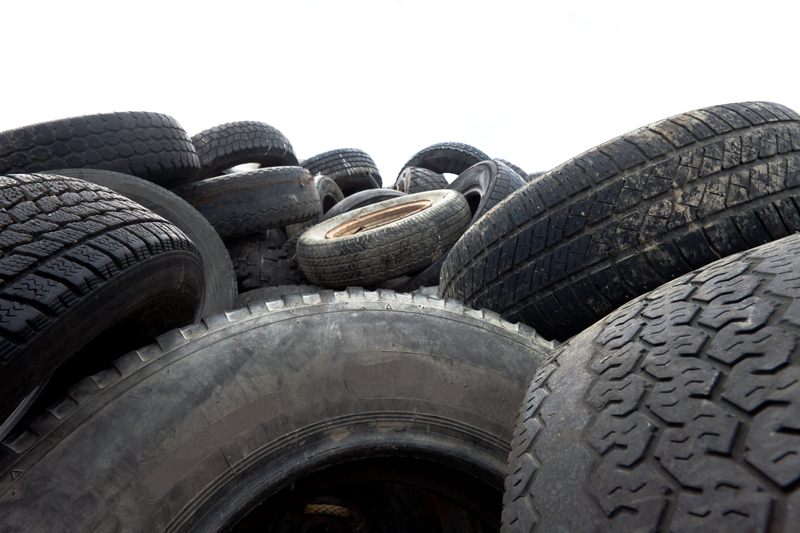The Money-Saving Guide to Managing Bulky Waste Items
Struggling to deal with bulky waste? Whether it's leftover furniture, appliances, or garden debris, getting rid of large and awkward items can be expensive and confusing. This comprehensive, SEO-friendly guide breaks down cost-effective solutions for managing bulky waste items safely, legally, and in an environmentally responsible way.
Understanding Bulky Waste: What Qualifies?
Bulky waste refers to items too big for regular bin collection, typically weighing over 25 kg or longer than 1.5 meters. Some common types of bulky waste include:
- Old sofas, mattresses, chairs, and beds
- Fridges, freezers, washing machines, and other large appliances
- Wardrobes, bookcases & cabinets
- Bathroom suites and sinks
- Carpets and large rugs
- Garden furniture, barbecues, sheds, and trampolines
Most household bins and normal rubbish collection services cannot accommodate these items, making responsible bulky item disposal crucial for tidy homes, environmental protection, and compliance with local regulations.

Top Money-Saving Tips for Dealing With Bulky Waste
1. Plan Ahead: Don't Pay for Last-Minute Solutions
One way to save money is to plan your bulky waste removal. Rushed, emergency pickups or skip hire can be expensive. When moving, renovating, or replacing furniture, consider how to dispose of items in advance. This gives you time to compare options and potentially avoid unnecessary costs.
2. Reduce Before You Remove: Resell, Donate or Reuse
The cheapest way to get rid of bulky waste is not to treat it as waste at all!
- Sell usable items: Platforms like Facebook Marketplace, Gumtree, and eBay allow you to declutter and earn cash for functioning furniture, appliances, and sports equipment.
- Donate to charity: Charities (such as the British Heart Foundation, Emmaus, and Furniture Project) often offer free bulky item collections, giving your unwanted items a second life and helping someone in need.
- Upcycle or repurpose: Transform old wardrobes into shelves, or use timber from broken beds for DIY projects. This creative approach saves disposal costs and benefits the environment.
Before disposing, always check if your bulky items are still usable to maximize your savings and reduce landfill waste.
3. Use Free Council Bulky Waste Collection Services
Many local councils offer free bulky waste collections for a limited number of items per year. Key tips:
- Visit your council's website to confirm eligibility and schedule a collection.
- Prepare your items according to guidelines (e.g., leave items outside, remove doors from fridges, etc.)
- Combine your collection with neighbours to maximize the item limit and share savings.
Don't pay a private firm before checking for free council options!
4. Share Disposal Costs With Neighbours or Friends
If the local authority charges for bulky waste removal, team up with neighbours and split the collection fee--after all, most councils charge a flat rate per visit, not per item. This community approach can significantly reduce costs for managing large rubbish removal.
5. Drop Items at the Local Recycling Centre
Recycling centres (also known as "tip" or "civic amenity sites") often accept bulky items for free or at low cost. Always check:
- Opening hours and site rules
- Any resident restrictions (ID or proof of address may be needed)
- Accepted materials: Many sites sort items for recycling, especially mattresses, appliances, and wood furniture
Taking bulky waste to the tip is usually the most budget-friendly DIY solution, although you will need suitable transport and help with lifting.
6. Choose the Right Skip or Waste Removal Company
For larger projects, hiring a professional rubbish removal service or skip might be necessary. To avoid overspending:
- Shop around for quotes: Compare at least three local providers
- Choose the right size: Don't overpay for an undersized or oversized skip
- Sort and separate: Collect only permitted waste--disallowed items may incur extra charges
- Avoid restricted items, such as tyres, liquids, and asbestos
- Ask about recycling rates: Many companies recycle 80%+ of bulky items, reducing landfill and potentially saving you disposal fees
7. Consider Man & Van Bulky Waste Removal Services
Unlike skips, man & van rubbish clearance services offer flexible pricing based on load size and often do all the lifting for you. This can be a cheaper and more convenient way to get rid of single or a few bulky items quickly. Just check that providers are licensed waste carriers to avoid illegal fly-tipping issues.
8. Check for Producer Take-Back Schemes
Many stores and manufacturers offer take-back or trade-in programs for old mattresses, fridges, TVs, and sofas when you buy a replacement. These bulky waste collections are often free or discounted, making it easy and economical to upgrade your furniture or appliances responsibly.
Saving Money While Being Green: Bulky Waste Environmental Impact
It's not just about saving money but also about responsible disposal. Bulky items contain materials harmful to the environment if not managed properly--think electricals with hazardous components or old sofas full of chemicals.
- Appliances--contain refrigerants and metals needing special recycling
- Mattresses--foam and springs are hard to landfill, but often recyclable
- Wood furniture--may contain varnishes or paints requiring careful processing
When choosing your disposal method, always prioritize recycling or donation over landfill to protect the planet and sometimes even reduce costs.
Legal Must-Knows: Fines and Fly-Tipping Dangers
Cutting corners on proper bulky waste disposal can lead to criminal penalties. It's illegal to:
- Abandon large rubbish in alleyways, parks, or lay-bys (fly-tipping)
- Pay an unlicensed collector to dispose of your waste
- Misuse bins and communal waste areas for personal bulky waste
Councils can fine households up to ?400 for illegal dumping or even prosecute for repeated offences. Always confirm that any waste collectors are registered and provide you a waste transfer note.
FAQs on Cost-Effective Bulky Waste Management
What counts as bulky waste?
Common bulky waste items include beds, sofas, fridge freezers, wardrobes, bathroom suites, carpets, and large garden toys--not standard bin bags or small items.
Will the council collect my bulky items for free?
Some councils offer limited free collections per year; others charge a fee per item or per collection. Always check your local authority's website for details.
Can I put bulky waste in a skip?
Most skips accept household furniture, appliances, and garden debris--but not hazardous waste, liquids, or tyres. Check provider rules for any extra restrictions.
How do I find a licensed bulky waste carrier?
All reputable companies display a waste carrier license number and provide a waste transfer note. Search the Environment Agency's public register or request proof before booking any service.
Is donating to charity always free?
Many charities collect larger reusable items for free, but items must be in good condition (and meet fire safety standards for soft furnishings). Check with your local branch for restrictions and booking requirements.

Essential Checklist for Money-Saving Bulky Waste Disposal
- Sell or donate reusable items before disposing
- Look for free council collection dates in advance
- Team up with others to split disposal costs
- Use recycling centres for self-haul savings
- Shop around for reputable, licensed providers
- Check for take-back or trade-in schemes at retailers
- Prioritize recycling and legal disposal to avoid fines
Conclusion: Manage Large Waste Cheaply and Responsibly
Managing bulky waste items doesn't have to break the bank. By planning, seeking free or low-cost options, and prioritizing reuse and recycling, you can save money--and help the environment. Always verify the legitimacy of collectors, check for local disposal schemes, and think before you throw to make large rubbish disposal both affordable and sustainable.
Ready to cut your clutter? Use the tips in this money-saving guide to managing bulky waste and enjoy a cleaner, greener home--without unnecessary expense!
